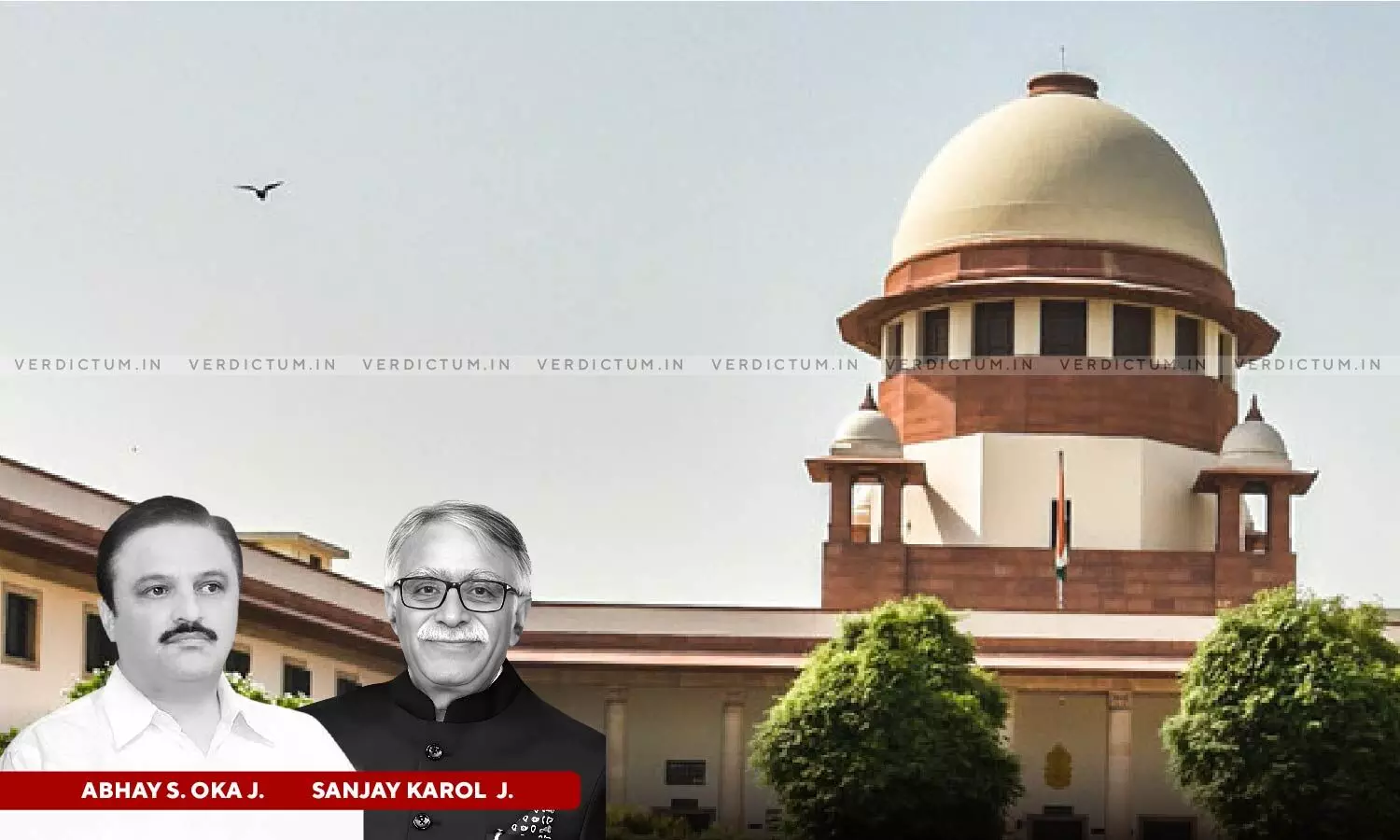
SC Invokes Article 142 To Grant Full-Time Appointment To Part-Time Lecturer, Directs State To Release Grant-In-Aid For Paying Her Salary
 |
|The Supreme Court while invoking Article 142 of the Constitution directed a part-time lecturer’s appointment on a full-time basis. The appellant was a lecturer employed by a college affiliated with Shivaji University, Maharashtra. In 1992, she was appointed as a part-time lecturer. Later, she applied for full-time lecturer positions and was appointed in 1993, initially on a temporary basis due to various administrative errors and changes in posts.
The Court further directed the State to release the grant-in-aid for the payment of her salary from the date of her appointment to the post of Lecturer pursuant to the order of the Apex Court.
A two-judge Bench of Justice Abhay S. Oka and Justice Sanjay Karol observed that, “The appellant continues to work as a lecturer in English on a half time basis. Therefore, for doing substantial justice, this is a fit case where we should invoke our power under Article 142 of the Constitution of India for continuing her appointment on full time basis.”
A series of advertisements and appointments occurred, sometimes favoring other candidates over the appellant despite her higher merit. The legal battles spanned years, involving the University and College Tribunal and the High Court.
The case eventually reached the Supreme Court, with the appellant appealing against the dismissal of her writ petitions. As of March 2018, the status quo was maintained, and the appellant's employment remained in a part-time or half-time capacity.
Advocate Amol Nirmalkumar Suryawanshi appeared for the Appellant and Advocate Sandeep Sudhakar Deshmukh appeared for the Respondents.
The Court noted that the July 1993 advertisement saw both the appellant and fifth respondent applying for English lecturer positions. The appellant was conditionally appointed against an open post, pending NET Examination results. The fourth respondent approved another candidate’s open post appointment in Jan 1994. Fifth respondent took a reserved post for a year without protest. In a subsequent advertisement, the appellant was appointed without NET qualification, unchallenged by the fifth respondent. The fifth respondent contested her termination due to a different appointment. The appellant was made part-time in 1999 due to limited positions. The fifth respondent's appeal led to her reinstatement in 1999. The appellant filed a writ petition, later dismissed. The High Court had ruled the appellant's first appointment invalid. Unique due to fifth respondent's non-protest, the appellant was part-time till 1999. The fourth respondent approved her regular appointment. The appellant's situation hindered other appointments. The second process appointment was unchallenged by the fifth respondent. Currently, the appellant was working part-time.
The Supreme Court invoked Article 142 to continue her full-time appointment, directing grant-in-aid from the State Government.
The Court modified the order without affecting the fifth respondent and the directions under Article 142 were given without setting a precedent. The Court directed the reinstatement of the appellant, no salary till appointment, seniority below fifth respondent, and grant of retiral benefits. The State Government was directed to release grant-in-aid for salary. The fifth respondent's position was kept unaffected.
Accordingly, the Court disposed of the Petition.
Cause Title: Vijaya Bhiku Kadam v. Mayani Bhag Shikshan Prasarak Mandal & Ors.
Click here to read/download Judgment